“Growth for the sake of growth is the ideology of the cancer cell.” -Edward Abbey
The inherent idea of the thought is that when the economy grows, it should grow with the people around whom it grows, else the whole idea of growth will be an confounded illusion, a mirage.
Before we go any further delving deeper into the idea, we would like to give you a fair picture of what the topic is all about, through the video as it would probably do more justice to your sense of understanding and my effort at explaining.
Economic Models:A General Idea
Capitalism- The Free Market Economy
As you already might have envisioned from the video, capitalism or Laissez-Faire or market economy refers to a free market which believes that it produces the best economic outcome for the society, without any government intervention. Combined with private/corporate ownership, goods and services are produced for generating individual profits, which is reinvested into the economy to refuel economic growth. Nations like UK, US and Hong Kong follow a model which is mostly capitalistic.
Capitalism has its own advantages. It has minimum political interference, and hence no red-tapism involved, efficient, creates a competitive and a healthy market, encourages talent and innovation and leads to rapid economic growth. A majority of the countries in the world are capital driven economies, if not purely capitalistic, the reason, for the same being, it allows the markets to flourish and aids economic growth. If it is so, then where lies the problem? Why arises the question of an alternative?
Capitalism paints an illusory picture. It aides economic growth for sure, but the wealth stays concentrated in the hands of an elite few. The GDP of the nation might increase, hence giving a wrong picture of the per capita income, but the economic disparities spread their roots wider. The private ownership of capital provides them the power to monopolise the market and charge higher prices, in the long run. It also induces monopsony wherein the labour is exploited with low wages. The social benefit is ignored, at large leading to social divisions. Most importantly, it is prone to boom and bust cycles and bubbles (the sub-prime crisis, dot-com), leading to economic recession and mass unemployment. It may incentivise talent, but after a certain level, the diminishing marginal utility of wealth makes it irrelevant.
The picture below provides insights about how the income inequality has surged to unaccepted levels in US and UK since 1970. The same is true for many other capitalistic nations.
[caption id="attachment_45710" align="aligncenter" width="300"]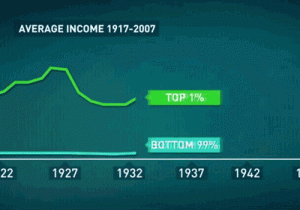 US Income Inequality[/caption]
US Income Inequality[/caption]
Then the question arises- Is the world economy so helpless that it has no alternatives to capitalism? Let’s weigh our options.
Socialism- The People’s Economy
Socialism is based on the theory that all individuals should have access to articles of consumption and public goods to allow for self-actualization. Large-scale industries are collective efforts and thus the returns from these industries must benefit society as a whole. It is aimed at reducing economic disparities, reducing social evils and improving standards of living. So, apparently, socialism tends to do away with the inequalities generated by Capitalism? Then is it the way to go?
Socialism is more of an unreal theory, which is hardly implementable in its purest form. It involves intricate bureaucracy and stunts economic growth as such. It boosts incompetence and complacency. It might redistribute wealth but hardly solves the bigger issues of poverty, education and social evils. In fact, the disintegration of USSR has put a big question mark on the adoption of the socialist model.
Communist: The Hardcore Socialist
Communism is an intensified form of socialist ideology where the Government takes full control of all economic activities in the state. All economic resources are equally divided among the whole population. According to the delegate of China, “Communism is a concept which could only operate properly in a perfect world. Unfortunately, we do not live in a perfect world.”
Hence very rightly said by Winston Churchill:
“The inherent vice of capitalism is the unequal sharing of blessings; the inherent virtue of socialism is the equal sharing of miseries”
Mixed Economy: A Hybrid
Mixed economies usually start from giving private enterprise to run majority of the businesses before the government will finally intervene with specific economic areas, including spending money on the public services as well as regulation. Some examples of Mixed Economy includes France, Iceland, Sweden etc. It combines the benefits of both capitalism and socialism. It balances government regulations and at the same time, lets the government intervene whenever there is corporate mishandling of resources or comes to the rescue, whenever there is market failure. The outcome- macro-economic stability, which increases the possibilities of inclusive growth. Innovation is encouraged and at the same time, the social and economic benefits trickle down to the lower levels.
So of course, this is definitely an encouraging alternative. Now one might argue that just as the benefits, what if the evils of both get clubbed together? The fact is in mixed economies, the two models come together to complement each other and bring about a major revamp in the economic and social condition. The socialistic part acts as a relief valve, an authoritarian part acts as a convenient villain and hence neutralises the ill effects of capitalism. But then again, why have so many mixed economies haven’t had a great success? It is because the responsibility of ascertaining the proportion of government and private dealings, lies at the discretion of the state. Once optimised, it can lead to really encouraging results, but deciding the proportion is a subjective issue, specific to the state. Portraying a general picture, the income distribution is comparatively much better than other models.
The New Models
1- Progressive Utilisation Model (PROUT)
PROUT seeks a harmonious balance between economic growth, social development, environmental sustainability, and between individual and collective interests. Even though, the model is new and still under research, PROUTist thinkers and activists are creating a new civilizational discourse and planting the seeds for a new way of living by ensuring economic democracy, guaranteeing “basic” necessities to all, encouraging science and innovation, cultural diversity, freedom and a world Government.
2- Economic Democracy
This involves socialising control of enterprises and the means of production, placing resources, factories and other productive capital into the hands of the people and away from the short-term interests of both the state and private sector. Under the vision of economic democracy, workers would control most enterprises democratically. Workers would control (but not own) the enterprises they work in and, after paying a "capital assets tax" (a sort of rent) on revenue-generating property, any surplus would be divided democratically between them. Not all of the "means of production" would be socialised, entrepreneurs would need to be encouraged to start up new enterprises. So that the majority of enterprises remain democratically controlled, any privately owned companies could only be sold to the state, which would then put them into the control of the workers. Enterprises would still interact with one another and with consumers in a market driven by the forces of supply and demand. Innovation and entrepreneurial activity would flourish.
One might argue that these models are nascent models and the credibility of such models cannot be ascertained. Fair enough. My point is to make it clear that we do have several implementable and better models as alternatives to capitalism. And a change cannot be brought about in a day or month or year. It would need to complete a full cycle before it gets implemented.
The Indian Context
Today, most of the economies of the world are capitalist driven, spiced up with socialist elements, which are actually more populist than realistic. India is a burning example of such a state. It has come a long way since 1991 to give market enough freedom and at the same time, to take care of all social problems facing the nation. But the disproportionate distribution of the elements and a mismanagement of the resources, crony capitalism, corruption, authoritarian attitude of political coalitions, hasn’t enabled India to reap the fruits of its efforts. Presently the plans to FDI in retail plans, the social reforms and the NaMo Government seems a lethal combination to carry forward the agenda. Given the change in the attitudes of people and a radical change in thought process, which is even evident in capitalistic US and communist China, the world is slowly and steadily moving towards a sustainable cooperative model, very different from capitalism, in the future.
Read IIM Lucknow's counterpunch to this article here
References:
1- http://www.theguardian.com/sustainable-business/future-business-alternatives-capitalism
3- http://www.economicshelp.org/blog/5002/economics/
4- http://www.foreignpolicy.com/articles/2007/08/15/how_capitalism_is_killing_democracy
Ansuman Mishra
Akshya Kattuputhur Murali
XLRI Jamshedpur


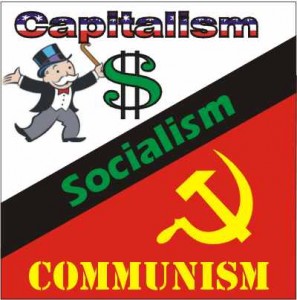

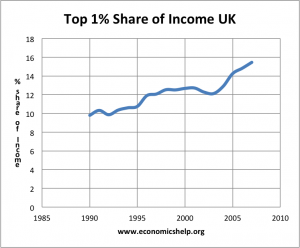
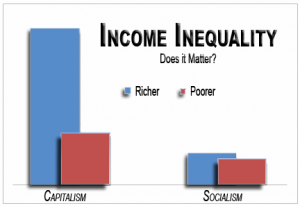
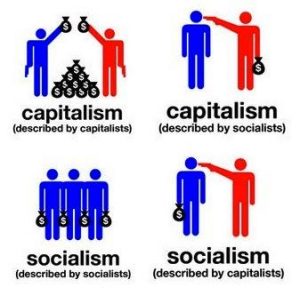











Comments